Bharat bandh: India farmers strike to press for repeal of laws
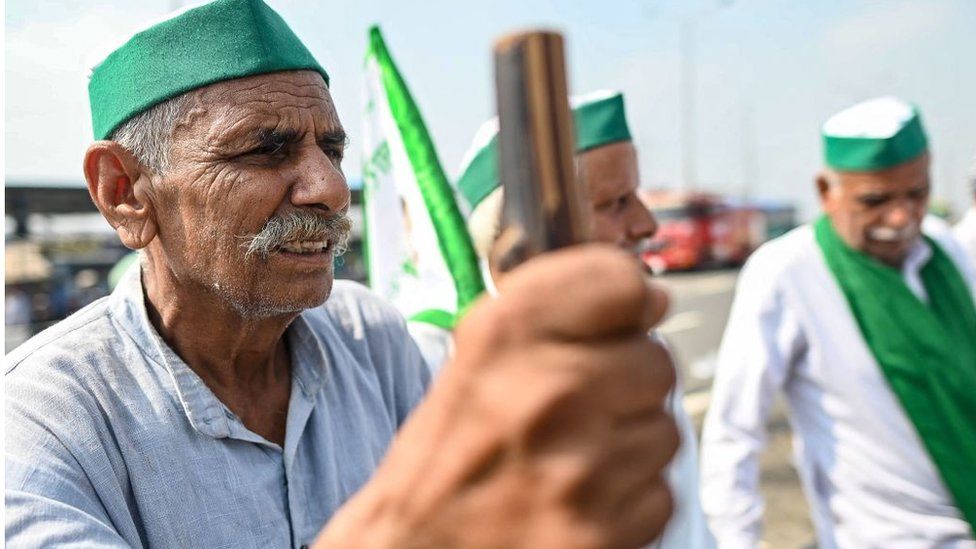
Hundreds of farmers in the Indian states of Punjab and Haryana have blocked roads as they re-energise their protest against contentious farm laws.
Farmers, who have been camping at Delhi's borders since last November, want a repeal of the laws.
Several rounds of talks between farmer unions and the government have yielded no results.
The government says the laws will increase farmers' income, but unions see them as unfair and exploitative.
Prime Minister Narendra Modi has called the reforms a "watershed moment" for Indian agriculture. But farmer groups said contrary to promises that the laws will help improve farm incomes and increase productivity, they will in fact expose them to the vagaries of the free market and make them poorer.
Monday's call for a "bharat bandh", or nationwide strike, comes on the first anniversary of the laws' approval in parliament.
Major opposition parties, including the Congress, and several state governments have lent their support for the strike, which began at 06:00 local time (00:30 GMT) and is expected to last until 16:00 local time.
The Samyukta Kisan Morcha (SKM), an umbrella group of some 40 farmers' unions, had called for schools, colleges, workplaces and shops across the country to remain shut, but it said emergency services will be allowed to operate.
The southern state of Kerala has almost completely shut down, according to news reports, and there have been rallies and protests in other states. Traffic in Punjab, Haryana and on highways connecting Delhi to neighbouring states has been disrupted.
What exactly do the laws do?
Taken together, they will loosen rules around sale, pricing and storage of farm produce - rules that have protected India's farmers from the free market for decades.
They also allow private buyers to hoard essential commodities for future sales, which only government-authorised agents could do earlier; and they outline rules for contract farming, where farmers tailor their production to suit a specific buyer's demand.
One of the biggest changes is that farmers will be allowed to sell their produce at a market price directly to private players - agricultural businesses, supermarket chains and online grocers. Most Indian farmers currently sell the majority of their produce at government-controlled wholesale markets or mandis at assured floor prices.
These markets are run by committees made up of farmers, often large land-owners, and traders or "commission agents" who act as middle men for brokering sales, organising storage and transport, or even financing deals.
It's a complex system underpinned by regulations, and a host of personal and business relationships.
The reforms, at least on paper, give farmers the option of selling outside of this so-called "mandi system".
So, what is the issue?
The issue is that it's unclear how this will play out in reality. For one, farmers can already sell to private players in many states but what these bills do is offer a national framework.
But farmers are mainly concerned that this will eventually lead to the end of wholesale markets and assured prices, leaving them with no back-up option. That is, if they are not satisfied with the price offered by a private buyer, they cannot return to the mandi or use it as a bargaining chip during negotiations.
"First, farmers will feel attracted towards these private players, who will offer a better price for the produce. The government mandis will pack up meanwhile and after a few years, these players will start exploiting the farmers. That's what we fear," Multan Singh Rana, a farmer in the northern state of Punjab, said.
The government has said the mandi system will continue, and they will not withdraw the Minimum Support Price (MSP) they currently offer. But farmers are suspicious.
"This is a death warrant for small and marginalised farmers. This is aimed at destroying them by handing over agriculture and market to the big corporates. They want to snatch away our land. But we will not let them do this," Sukhdev Singh Kokri, a farmer, told BBC Punjabi last year.
The protests have been the strongest in Punjab and Haryana, where the mandi system is strong and the productivity is high - so only the government has been able to buy that volume of produce at a set price.
"Giving the freedom to the farmer to sell outside the mandi system, to whoever, is a welcome step, in unshackling the farmer," says economist Ajit Ranade.
"But you need the mandi system to coexist with private trading system. Perhaps the government needs to come out with a written law that they will not withdraw the MSP or the mandi system."
Other analysts also say that much greater reforms - in land use for instance - are needed to give private players any real clout.
India still has stringent laws around the sale and use of agricultural land, and high subsidies that protect farmers from market forces.
So, why do India's farmers feel insecure?
On paper, India's farmers are recipients of generous subsidies and, often, even debt waivers. They are exempt from income tax and and receive assured prices from the government for 23 crops.
But farming in the country is not lucrative and hasn't been so for years. Most of India's farmers are small or marginal - more than half own less than one hectare of land. Few actually receive assured prices and most of them sell in the open market.
Although agriculture employs more than half the population, it accounts for less than a sixth of India's GDP. The reasons for this are numerous - from low yields to small and fragmented landholdings to lack of modern storage and infrastructure.
"The anger over injustice to farmers was brewing. Now it's getting channelised through this protest against the new laws," Devinder Sharma, a food and trade policy analyst, told the BBC's Soutik Biswas earlier this year.
There are no easy answers. But many experts agree that in a country where agriculture employs so many millions, leaving farmers' fates to the vagaries of the market cannot be the only answer.
Where do things stand now?
The government has suggested tweaks to the laws, and has offered to suspend them altogether for up to 18 months even as negotiations continue.
But farmers have refused to budge, saying they will not settle for anything less than a full repeal of the laws.
A rally against the laws planned for India's Republic Day on 26 January turned violent, after protesting farmers broke through police barricades to storm Delhi's historic Red Fort complex.
One protester died and some 500 policemen were injured. Farm union leaders condemned the violence and blamed the chaos on rogue elements among an otherwise peaceful march.
Some said the protests lost their legitimacy after the violence, while others said the farmers should accept the government's offer to put the reforms on hold and return home.
More than 400 farmers have died during the protests which lasted through Delhi's harsh winter and scorching summer, according to SKM. While the Punjab government confirmed 200 deaths, Mr Modi's administration said it had no data on such deaths.
Since early February, iron nails, rods, barbed wire, boulders and makeshift walls have been used to barricade the capital's entry points against the protesters.

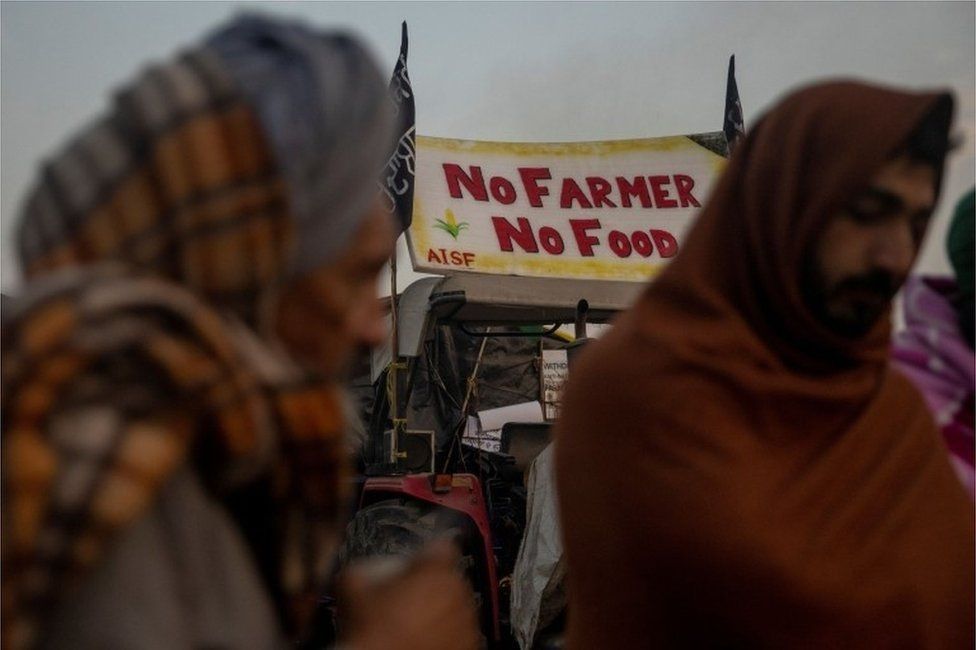
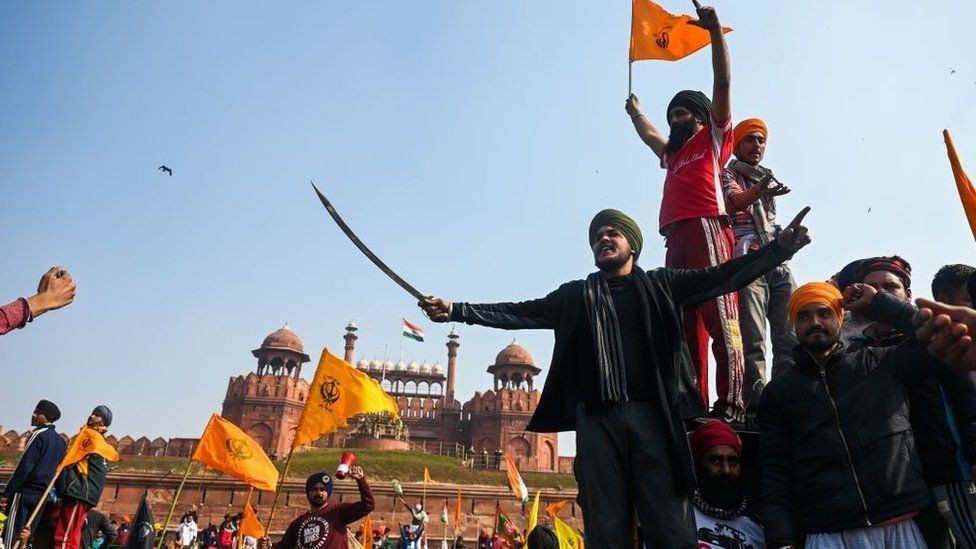
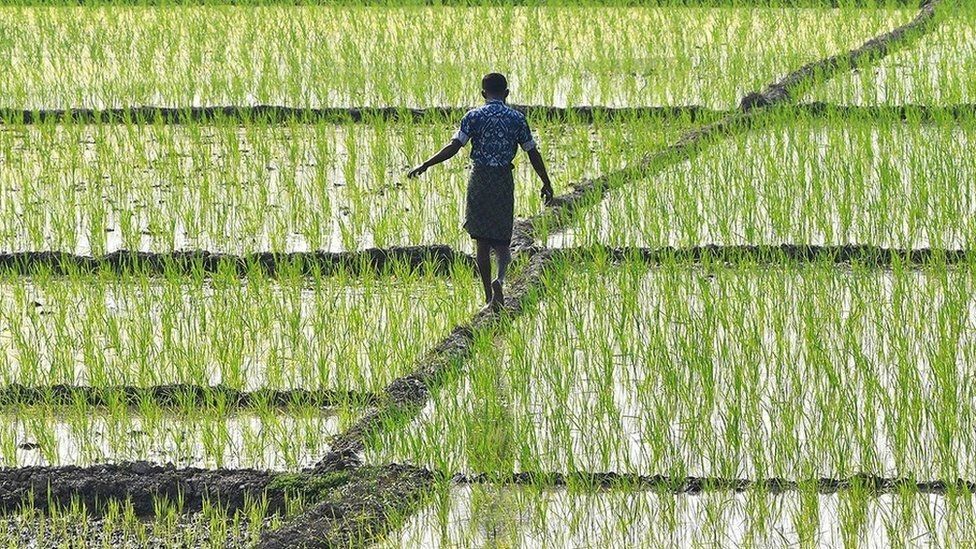
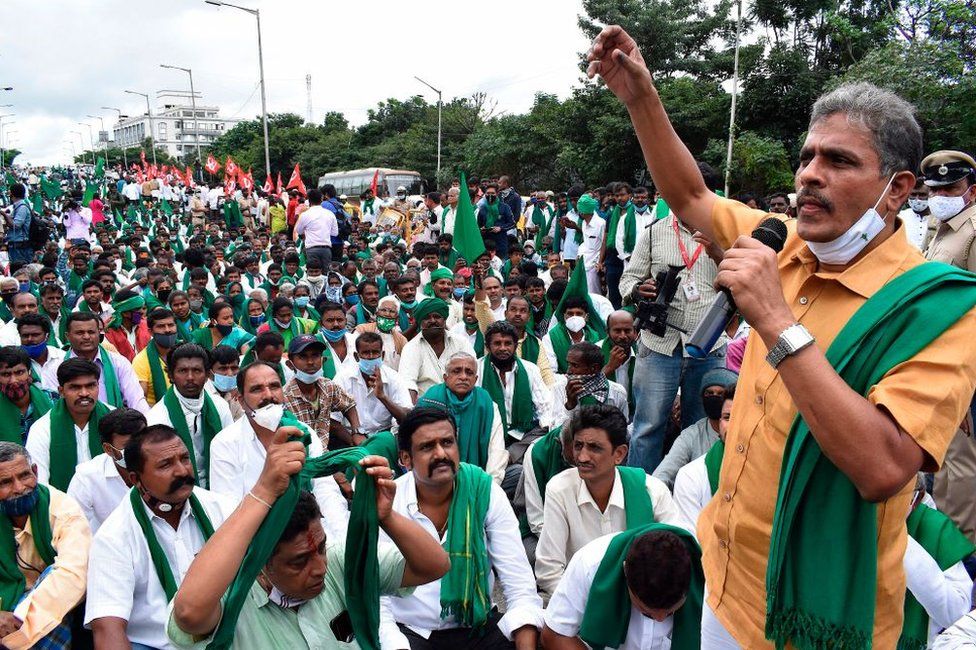








Comments